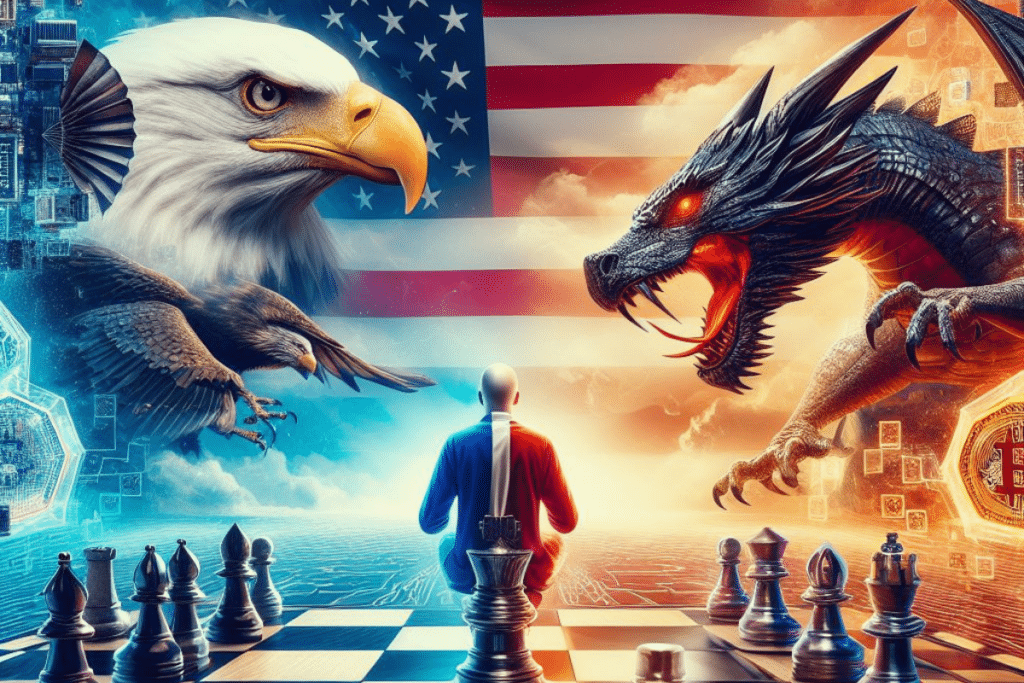AI and Crypto: France Falls Victim to Rivalry Between the USA and China!
Artificial intelligence (AI) is redefining the boundaries of innovation and technology, and today France stands at a crucial crossroads. Amidst the technological giants of the United States and China, a new battlefield is unfolding where AI becomes the weapon of choice. French President Emmanuel Macron has recently spoken out against a European AI bill, fearing it might stifle French innovative potential. However, could this opposition ironically be hiding another issue, namely that of France’s digital and economic sovereignty?

French AI, caught between giants
The new European legislation on AI, although designed to regulate and oversee the use of this technology, appears to Macron as a hindrance to French creativity.
With companies like Mistral, a rising star of AI in Paris, France risks being overshadowed in a technological race dominated by the United States and China.
The situation becomes even more complex with the ban on using AI for creating social scoring systems.
On the other hand, the introduction of transparency requirements for AI frameworks, such as those developed by OpenAI, adds to this complexity.
Meanwhile, industrial groups like DigitalEurope are worried about the high cost of complying with these new rules.
At the same time, tensions are also surfacing in the management of privacy, especially with the controversial use of facial recognition technology.
France, which plans to use AI surveillance technologies for the Paris 2024 Olympics, therefore finds itself in a dilemma between innovation and the respect for individual freedoms.
Cryptocurrency and Artificial Intelligence: A controversial duo
France’s early adoption of Binance, even before the US lawsuits against the platform, underscores another facet of this complex dynamic.
The French government, in trying to make France a European hub for crypto-assets, might have unwittingly opened the door to abuses.
The use of privileges granted to Binance to attract youths from disadvantaged areas into a blockchain education program raises ethical questions.
The controversy doesn’t end there, as France’s stance on AI and crypto seems to vacillate between innovation and adherence to ethical and legal standards.
France’s position in this global power game around AI and crypto remains uncertain. Between the need to promote innovation and the respect for ethical and legal standards, the path is narrow. Macron’s final decision on the European AI bill and the future of the collaboration with Binance could redefine France’s role in the global technological race.
Ultimately, the debate goes beyond AI and crypto. It’s about a broader question: how can France and Europe progress while preserving their identity and autonomy in an increasingly digitized world? In the meantime, Binance remains shaken.
Maximize your Cointribune experience with our "Read to Earn" program! For every article you read, earn points and access exclusive rewards. Sign up now and start earning benefits.

Fascinated by Bitcoin since 2017, Evariste has continuously researched the subject. While his initial interest was in trading, he now actively seeks to understand all advances centered on cryptocurrencies. As an editor, he strives to consistently deliver high-quality work that reflects the state of the sector as a whole.
The views, thoughts, and opinions expressed in this article belong solely to the author, and should not be taken as investment advice. Do your own research before taking any investment decisions.